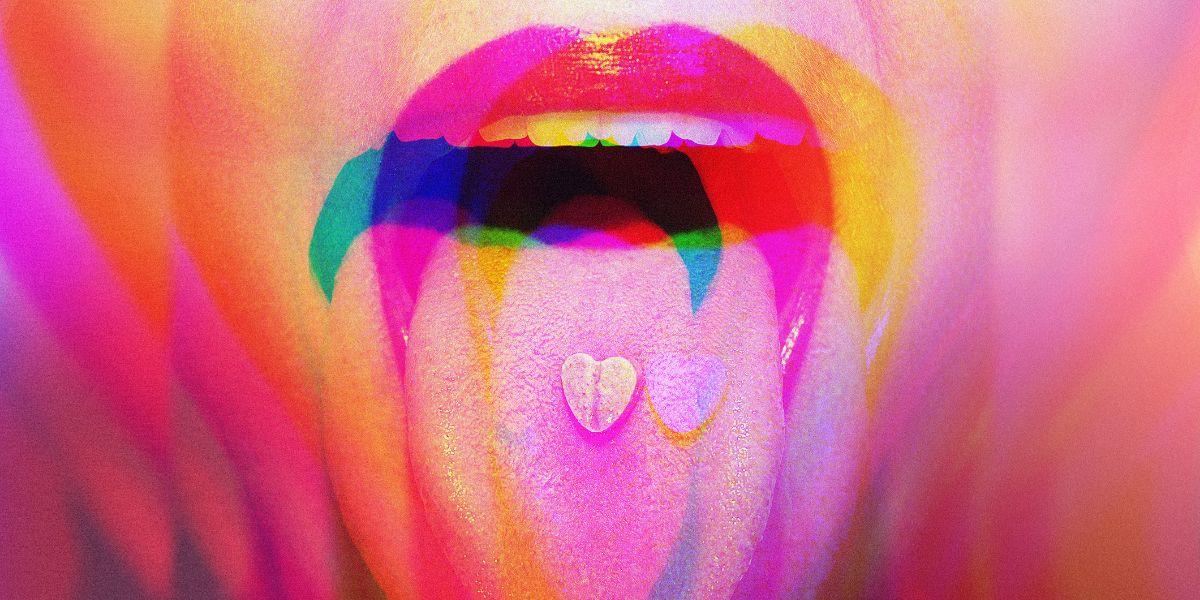LSD is a psychoactive hallucinogenic drug that is manufactured from lysergic acid (LCD is short for lysergic acid diethylamide).
This substance is found in ergot, a type of fungus that grows on rye and other grains.
LSD is usually distributed on sheets of blotting paper that have been dipped in the substance, dried and perforated into small paper squares or ‘tabs’ (these often bear psychedelic symbols or designs.
It can also be found in several others forms, including powder, thin gelatin squares or as a clear, odourless liquid. It is usually taken orally but can also be rubbed against the skin.
It is not considered to be an addicting drug as it does not produce compulsive drug-seeking behavior like other recreational drugs such as cocaine, heroin alcohol and nicotine
LSD: drug class
In the UK, LSD (or Acid) is categorised as a Class A drug under the UK Misuse of Drugs Act.
People caught in possession of this extremely potent drug can face an unlimited fine and up to seven years in prison. This can extend to life imprisonment for those caught supplying or dealing the drug.
Effects on the body
The impact of LSD on the body varies greatly depending on the amount take, the user’s environment and mood.
Physical symptoms can include:
- Increased heart rate
- Increased blood pressure
- Dilated pupils
- Higher body temperature
- Sweating
- Loss of appetite
- Sleeplessness
- Tremors
- Dry mouth
In terms of feelings and sensations, large doses of the drug often lead to delusions, altered sense of time and space, and extreme visual hallucinations (also known as trips), which can last up to 12 hours.
LSD can also cause a ‘crossover’ of the senses, including sound and vision – for example, users often report seeing sounds or hearing colours.
As with the physical symptoms, these psychedelic effects can be unpleasant or even frightening.
Bad ‘trips’ can result in total panic, severe depression or fear of death. Even after coming off the drug, users can have sudden flashbacks of certain aspects of their LSD experience.
These flashbacks can occur within a few days or more than a year after LSD use.
Research also suggests that regular use of LSD can trigger mental disorders in individuals who have no history of mental health problems.
Possible effect on diabetes
LSD can affect control and management of diabetes as it distorts perception of reality and time. This could cause a person with type 1 or type 2 diabetes to forget their diabetes medication or insulin.
Users may also forget to check their blood sugar levels and could go long periods without eating or resting, increasing their risk of both hyperglycemia (high blood sugar) and hypoglycemia (dangerously low blood sugar levels).








